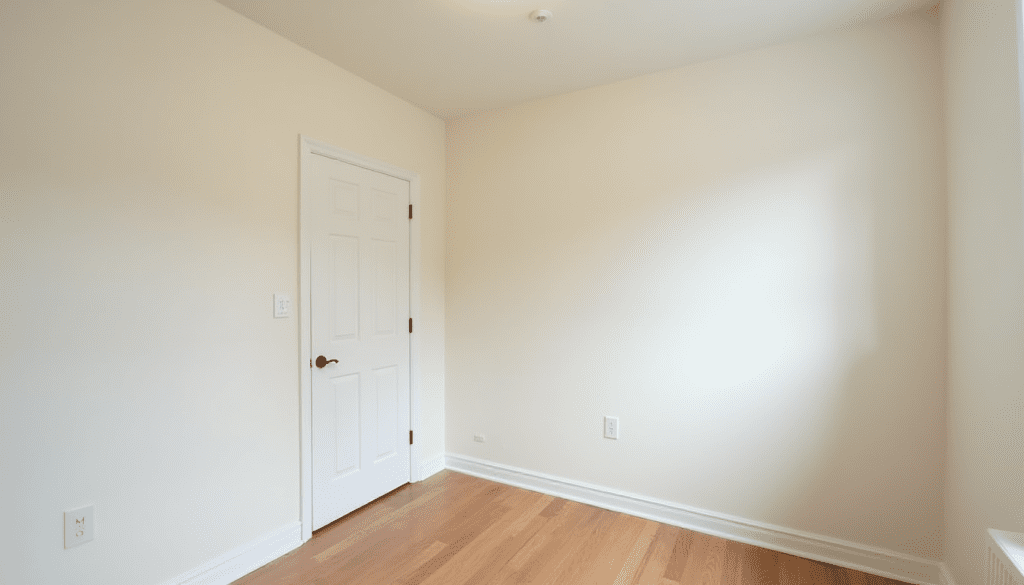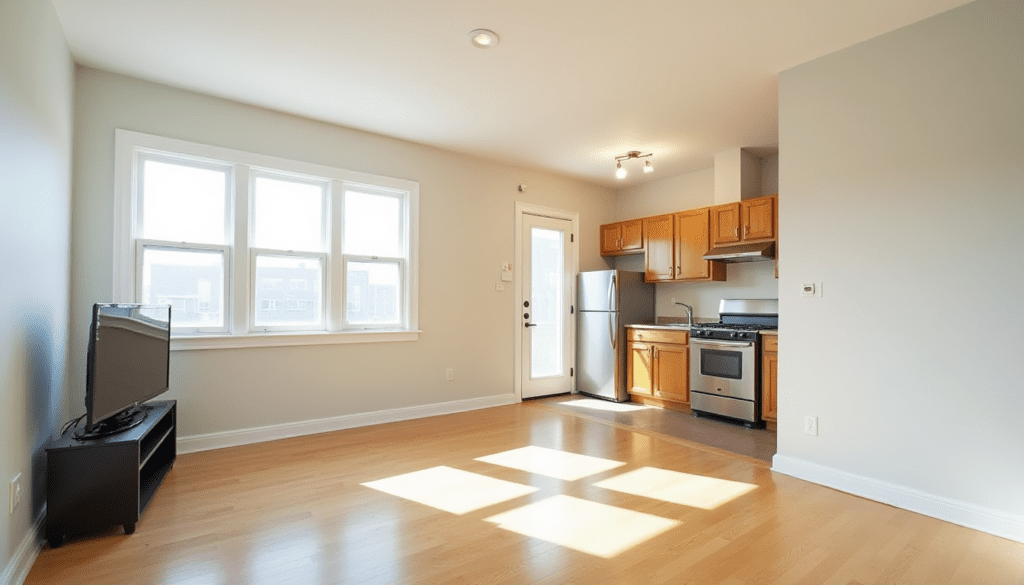1. Why Consistent Late Rent is a Problem for Landlords
Every landlord in East Orange, NJ eventually deals with tenants who struggle to pay rent on time. While a one-time delay may be manageable, consistent late rent payments create serious financial stress. Rental properties rely on steady cash flow to cover mortgage payments, property taxes, repairs, and maintenance. If tenants pay late month after month, the landlord may end up covering these costs out of pocket.
Late rent also complicates relationships with contractors, vendors, and even utility companies if payments fall behind. For landlords managing multiple properties, late-paying tenants can trigger a domino effect where one delayed payment disrupts the financial stability of the entire rental portfolio.
Beyond finances, tenants who are habitually late can disrupt the trust and communication between landlord and tenant. When rules in the lease are ignored, it sets a precedent that may cause further violations, such as skipped rent, unauthorized occupants, or improper property use. This is why New Jersey landlords — especially in areas like East Orange where rent control and local ordinances apply — must take late rent seriously.
2. Understanding New Jersey Laws on Late Rent & Grace Periods
Before taking any action, landlords must understand what New Jersey law says about late rent. According to N.J.S.A. 2A:42-6.1, tenants renting from certain property types are entitled to a five business day grace period if rent is due on the first of the month. This means a landlord cannot charge a late fee until after the grace period expires. Attempting to enforce late fees earlier could result in a tenant defense if a case escalates to court.
Additionally, New Jersey’s Truth in Renting guide requires landlords to clearly disclose late fee policies in the lease agreement. If the lease is silent on late fees, the landlord may not be able to enforce penalties legally. This highlights why lease drafting is critical — without the right clauses, landlords in East Orange have fewer tools to address late payments.
It’s also important to note that while New Jersey does not set a maximum late fee by statute, courts typically require that fees be “reasonable.” Excessive charges may be deemed unenforceable. A fee that reflects common banking penalties — often 5% of monthly rent — is considered more acceptable than a flat, inflated penalty.
3. East Orange Local Ordinances & Rent Control Rules
East Orange is unique compared to other New Jersey municipalities because it has a Rent Leveling Division. This local board oversees rent control and tenant protections. Landlords should understand that East Orange ordinances may affect how and when late fees can be applied, especially for rent-controlled units. For example, attempts to charge unreasonable late fees or to use late payments as an excuse for illegal rent hikes may violate local law.
The Rent Leveling Board also provides a forum for tenants to dispute charges, meaning landlords who attempt to impose unlawful late fees may find themselves in front of a city board hearing. To avoid this, landlords must ensure all lease provisions — including late rent penalties — are compliant with both New Jersey state law and East Orange ordinances.
For landlords managing properties in East Orange, this dual layer of regulation means extra care is required. If unsure, consulting with a local property management company or real estate attorney can prevent costly mistakes. RentShield Property Management frequently helps East Orange landlords navigate these rules.
4. Writing Lease Agreements that Prevent Late Payments
The lease agreement is the first line of defense against late rent. New Jersey’s Truth in Renting statement makes it clear that lease terms control how disputes are resolved. Therefore, landlords should ensure their lease includes:
- Clear due date — e.g., “Rent is due on the 1st of each month.”
- Grace period — compliant with New Jersey’s five-day rule where applicable.
- Late fee policy — amount, when it applies, and how it is calculated.
- Preferred payment method — online portal, check, ACH transfer, etc.
- Consequences of repeated late payments — potential for eviction if the tenant habitually pays late.
By spelling out these terms, landlords eliminate ambiguity and strengthen their legal position if disputes arise. Courts look favorably on landlords who can demonstrate that a tenant knowingly agreed to specific terms. On the other hand, vague or missing provisions can leave the landlord powerless to collect late fees or enforce stricter remedies.
Landlords should also avoid one-size-fits-all lease templates downloaded online. Every municipality, especially East Orange with its rent leveling board, has unique rules. A customized lease drafted with local regulations in mind is far more effective.
5. Specifying Late Fees & Penalties (What NJ Allows)
Late fees are one of the few tools landlords can use to encourage timely rent payments. However, these fees must be enforceable under New Jersey law and reasonable enough to withstand tenant challenges. The general guidance is that fees should reflect actual damages the landlord suffers from late rent, such as additional interest or administrative costs.
In East Orange, it’s best practice to set late fees as a percentage of monthly rent — typically 5% — rather than an arbitrary flat dollar amount. This aligns with what local courts usually consider reasonable. Importantly, landlords cannot impose compounded daily late fees that grow endlessly, as these are often struck down by judges.
The lease must also specify when the late fee applies. For example: “If rent is not received by the fifth day of the month, a late fee of 5% will be charged.” Without this clarity, enforcement becomes difficult. Furthermore, landlords must consistently apply the fee — waiving it repeatedly can weaken the clause if a dispute arises later.
Some landlords also include “habitual late payer” clauses, which define repeated late payments as a violation of the lease. This creates grounds for eviction even if the tenant eventually pays rent each month. However, landlords must follow all notice requirements under New Jersey law before pursuing eviction for this reason.
By structuring late fees legally and fairly, East Orange landlords can deter late payments without risking penalties from the Rent Leveling Division or courts.
6. Establishing Clear Payment Due Dates & Grace Periods
One of the most common reasons tenants in East Orange pay rent late is simple confusion about due dates or grace periods. As a landlord, you should never assume that tenants fully understand when rent is expected or when late fees apply. That’s why it is critical to establish clear rules in writing.
The lease should explicitly state the rent due date, whether payments are due “on or before the 1st of the month,” and whether New Jersey’s five business day grace period applies. By setting expectations up front, landlords avoid disputes about whether a payment is technically late. If the lease is vague, tenants may argue that they believed a longer grace period existed, which could weaken the landlord’s position in court.
East Orange landlords should also take into account how weekends and holidays affect due dates. Since New Jersey law specifies business days, rent due on a Saturday may not trigger late fees until the following Friday if no holiday falls in between. This level of detail should be communicated in both the lease and ongoing reminders to tenants.
Ultimately, clarity prevents conflict. Tenants who know the exact due date and late fee timeline are less likely to delay payment intentionally.
7. Offering Convenient Payment Methods to Reduce Late Rent
Another reason tenants frequently pay late is because the payment process is inconvenient. If you only accept physical checks, tenants may forget to mail them in time or face postal delays. To reduce late rent, East Orange landlords should provide multiple, modern payment options.
- Online portals that allow tenants to pay through ACH transfer or credit card.
- Automatic recurring payments that ensure rent is withdrawn each month.
- Mobile payment apps integrated with property management systems.
- Local drop boxes or in-person options for tenants without digital access.
These tools remove barriers and make on-time payment more likely. Some landlords also incentivize tenants by offering small discounts or perks for setting up auto-pay. Others use automated reminder systems that send text messages or emails before rent is due.
Convenience benefits both parties: tenants avoid stress, and landlords ensure steady cash flow. Partnering with professional property managers like RentShield Property Management can help implement these systems in East Orange rental properties.
8. Sending Reminders & Communication Strategies
Even with clear due dates and convenient payment methods, some tenants simply forget. This is where proactive communication becomes invaluable. Instead of waiting until rent is late, landlords should send gentle reminders as the due date approaches.
Common strategies include:
- Email reminders five days before rent is due.
- Text message notifications the day before the due date.
- Automated portal alerts if payments have not been received by the second day of the month.
These small actions reduce excuses and build a paper trail that proves the tenant was reminded. This documentation is especially important in East Orange, where disputes may end up in front of the Rent Leveling Division or housing court.
When rent does become late, landlords should maintain professionalism. Instead of starting with threats, begin with a polite inquiry. For example: “We have not received your September rent yet. Please let us know if payment has already been sent.” This tone maintains the landlord-tenant relationship while reminding the tenant that you are paying attention.
9. Handling Habitual Late Payments: At What Point to Act
A tenant who pays late once may deserve leniency, but habitual late payments are a different story. In East Orange and throughout New Jersey, courts recognize that repeated lateness disrupts the landlord’s rights. While tenants may eventually pay each month, the landlord still suffers financial instability and stress.
The key is to decide when late payments cross the line from occasional oversight to lease violation. Many landlords set an internal threshold, such as three late payments in a twelve-month period. If this threshold is met, the tenant is formally warned that their behavior constitutes a breach of the lease.
It’s important to document each late payment with:
- Dates rent was due vs. when it was actually received.
- Copies of reminder notices or emails sent.
- Receipts showing when late fees were applied.
Once the pattern is established, landlords can issue a Notice to Cease — a formal letter warning the tenant that continued late payments will result in eviction proceedings. This notice is crucial in New Jersey, where courts often require landlords to give tenants an opportunity to correct behavior before eviction.
East Orange landlords should remember that while eviction may be the final remedy, acting early with documentation and notices ensures compliance with state law and strengthens their case in housing court.
10. Legal Notice Requirements Before Eviction
If a tenant continues to pay late despite reminders, grace periods, and notices, landlords must turn to New Jersey’s eviction laws. However, eviction in East Orange cannot be pursued casually — landlords must strictly follow state notice requirements.
For nonpayment of rent, a landlord generally does not need to provide prior notice before filing an eviction complaint, since unpaid rent is considered an automatic breach. But for habitual late payment, New Jersey requires a Notice to Cease first, followed by a Notice to Quit if the tenant does not change behavior.
The process usually looks like this:
- Serve a Notice to Cease when the tenant has repeatedly paid late.
- If late payments continue, issue a Notice to Quit, ending the tenancy.
- File an eviction complaint in Essex County Special Civil Part, which covers East Orange.
Skipping these steps could result in dismissal of the eviction case. Additionally, landlords cannot use “self-help” measures like changing locks or shutting off utilities. Doing so is illegal under New Jersey law and may expose landlords to fines or damages.
East Orange landlords should also consider that tenants may challenge the eviction at the Rent Leveling Division or claim retaliation. That is why detailed documentation and legal compliance are essential. Partnering with an attorney familiar with East Orange rental law or working with a management company like RentShield Property Management ensures landlords stay within their rights.
11. Eviction Process in East Orange & NJ State Rules
When late rent escalates into a legal issue, landlords in East Orange must follow the New Jersey eviction process carefully. Eviction is formally known as a “Summary Dispossess Action” and takes place in the Essex County Special Civil Part. This court handles landlord-tenant disputes for East Orange and surrounding areas.
The process generally follows these steps:
- File a complaint with the court after proper notices (Notice to Cease, Notice to Quit) have been served.
- Attend the scheduled court date, where both landlord and tenant present evidence.
- If the judge rules in favor of the landlord, a Judgment for Possession is entered.
- The tenant may still pay the overdue rent before lockout in some nonpayment cases, stopping eviction.
- If the tenant does not comply, the court issues a warrant for removal and the county constable executes the lockout.
New Jersey law is clear that landlords cannot attempt to evict tenants themselves. Only the court and sheriff’s office can lawfully remove a tenant. Attempting self-help measures in East Orange — such as changing locks, removing belongings, or shutting off utilities — can result in significant penalties.
Given these complexities, many landlords turn to professional property managers or attorneys to handle the eviction process. This ensures compliance with both Truth in Renting requirements and East Orange Rent Leveling Board oversight.
12. Working with Tenants: Payment Plans & Hardship Alternatives
Not every late-paying tenant in East Orange is acting in bad faith. Sometimes financial hardship, medical bills, or job loss temporarily affect their ability to pay on time. In these cases, offering structured payment plans can be more effective than pursuing eviction.
Payment plans typically break overdue rent into smaller, manageable installments while requiring tenants to stay current on new rent payments. For example, a tenant who owes $1,200 might agree to pay $400 extra each month for three months in addition to their regular rent.
Landlords may also connect tenants with local assistance resources. East Orange residents may qualify for county or state rental assistance programs that help cover arrears. By working with tenants, landlords may avoid costly vacancies and legal fees while preserving a stable tenancy.
It is important, however, to put all agreements in writing. A signed addendum or repayment agreement prevents misunderstandings and serves as proof if disputes arise later.
13. Documenting Everything: Records, Notices, Receipts
In landlord-tenant disputes, documentation is everything. Courts in New Jersey, as well as the East Orange Rent Leveling Division, require landlords to prove their claims with written evidence. Without records, a landlord’s word may carry little weight against a tenant’s testimony.
Landlords should keep:
- Copies of the lease and all amendments.
- Payment ledgers showing dates and amounts received.
- Notices sent to tenants (Notice to Cease, Notice to Quit, late payment reminders).
- Receipts for late fees or partial payments.
- Communication records (emails, texts, letters).
Maintaining organized files protects landlords not only in court but also during disputes before the East Orange Rent Leveling Board. If a tenant challenges late fees or claims unfair treatment, proper documentation shows that the landlord acted reasonably and consistently.
14. Using Local Enforcement & Rent Leveling Board Resources
East Orange landlords have an additional resource that many outside municipalities do not: the Rent Leveling Board. This city agency oversees disputes between landlords and tenants related to rent increases, habitability, and payment issues.
If tenants consistently pay late and dispute late fees, landlords may need to present their case before the Rent Leveling Division. Here, the board evaluates whether charges are lawful and whether landlord actions align with city ordinances.
While this can be frustrating for landlords, using the Rent Leveling Board also provides a structured resolution process. Instead of private disputes escalating into hostility, the board offers an official venue for resolution. Knowing how to prepare documentation and present facts is key to succeeding in these hearings.
Landlords unfamiliar with this process should consider guidance from RentShield Property Management, which has experience navigating East Orange regulations.
15. Minimizing Conflict & Maintaining Good Landlord-Tenant Relationships
Even when tenants are late, landlords in East Orange should aim to minimize conflict. Strong landlord-tenant relationships reduce turnover, protect rental income, and maintain property reputation. Heavy-handed approaches may backfire, leading tenants to withhold rent, file complaints, or damage property.
Practical conflict-reduction strategies include:
- Maintaining professionalism in all communications, even during disputes.
- Offering reasonable flexibility when tenants face temporary setbacks.
- Using reminders and payment portals rather than threats.
- Conducting regular property inspections to identify problems early.
By focusing on long-term stability, landlords can protect their investment while maintaining a reputation as fair property owners. In East Orange’s tight rental market, a good reputation helps attract reliable tenants who pay rent on time.
16. When to Consult an Attorney & Useful Legal Resources
There comes a point when late rent issues go beyond management strategies. If tenants continue paying late despite notices, payment plans, and Rent Leveling Board involvement, it may be time to consult a landlord-tenant attorney.
Attorneys can:
- Draft enforceable lease agreements tailored to East Orange laws.
- Advise on proper notices and eviction procedures.
- Represent landlords in Essex County landlord-tenant court.
- Ensure compliance with Truth in Renting requirements and rent control ordinances.
Additional resources for landlords include:
- East Orange Rent Leveling Division
- New Jersey Late Rent Grace Period Law (N.J.S.A. 2A:42-6.1)
- New Jersey Tenants’ Rights Handbook
Ultimately, landlords who act proactively, document thoroughly, and seek professional help when necessary are best positioned to handle tenants who consistently pay rent late in East Orange, NJ. The combination of legal compliance and clear communication protects both rental income and property rights.









